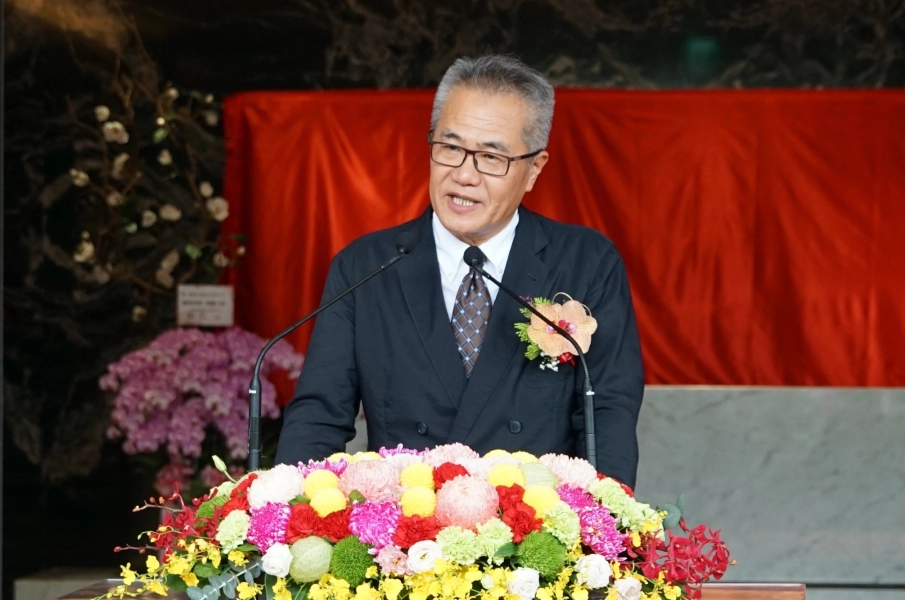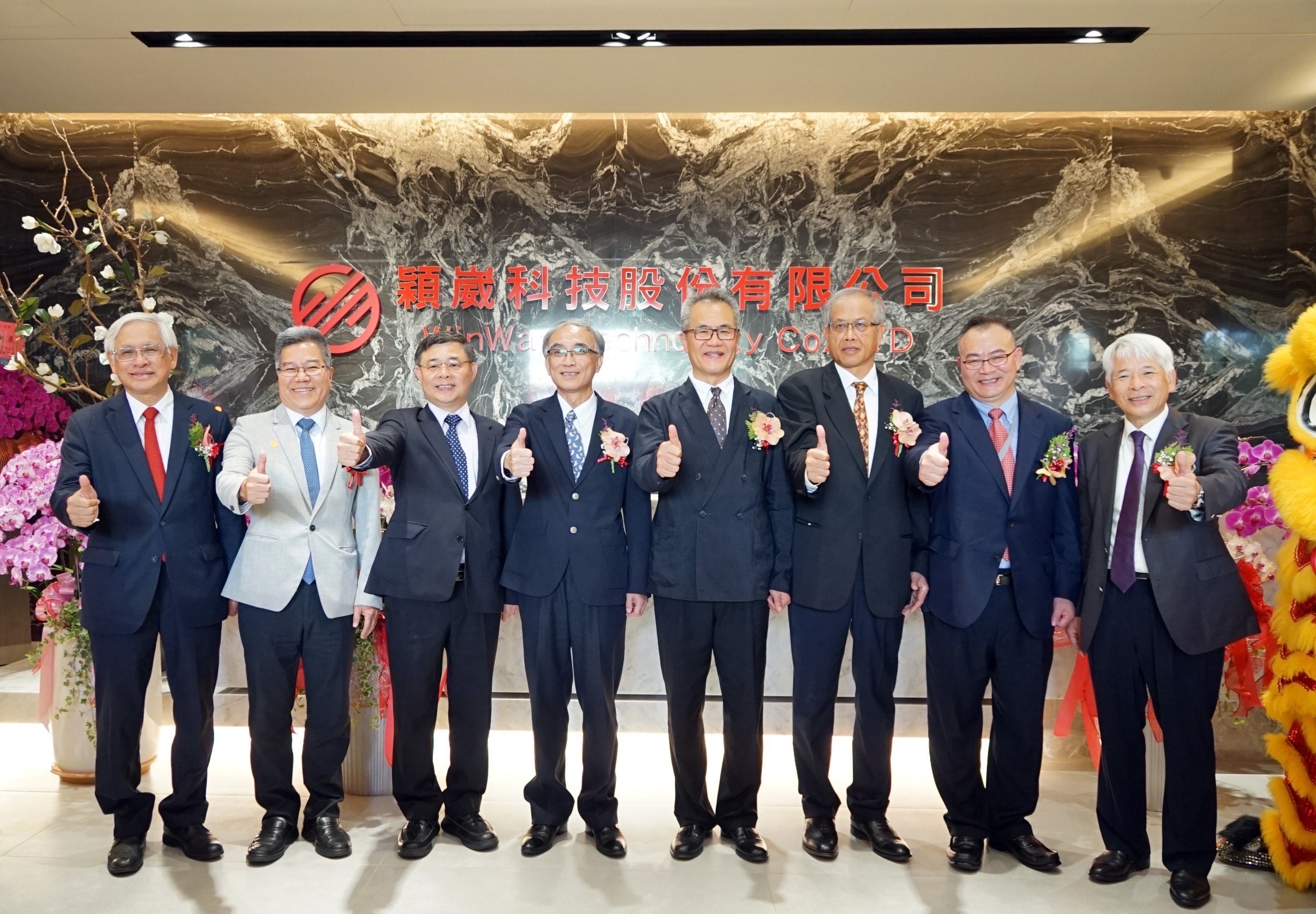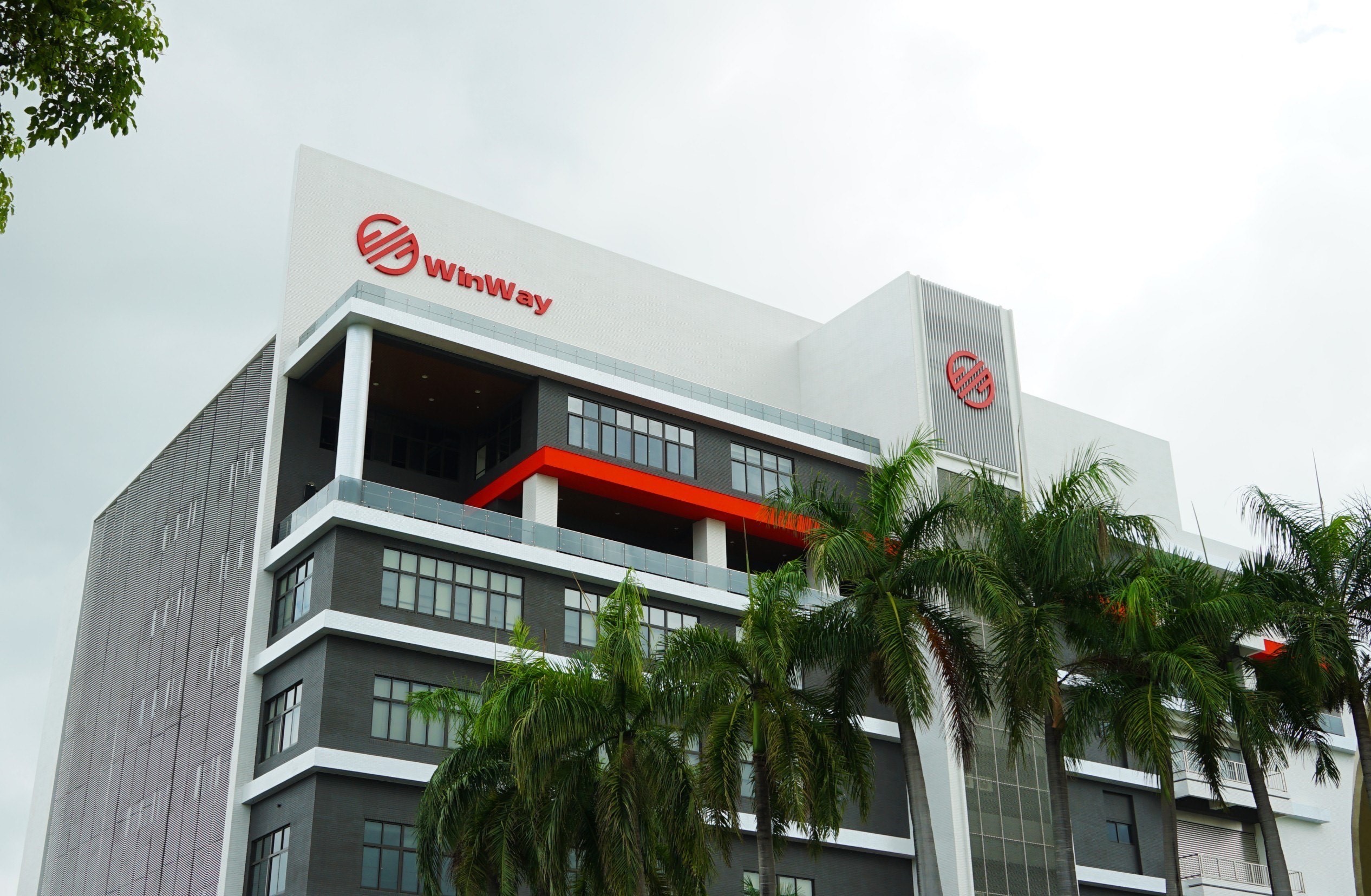
Leading IC testing interface key supplier WinWay Technology(6515 TW)(hereinafter referred to as WinWay) ,held the inauguration ceremony for its second factory in Nanzih Technology Park today (14th). With an investment of NT$3.25 billion, the second factory in Kaohsiung(KH2) is expected to create nearly a thousand job opportunities and generate an annual output value of over NT$1 billion for the city.
Deputy Secretary-General of Kaohsiung City Wang Chi-Chuan, Director of the Ministry of Economic Affairs' Science Park Bureau Yang Bo-Geng, Deputy Director of the Ministry of Economic Affairs' Science Park Bureau Liu Chi-Chuan, Chairman of Taiwan Technology Industrial Park Electrical And Electronic Manufacturer’s Association Chou Kuang-Chun, Secretary-General of the Taiwan Electrical and Electronic Manufacturers’ Association Lu Zheng-Qin, and many other VIPs attended the event to express their congratulations.
WinWay seeks to expand capacity second factory in Kaohsiung amid fast-growing testing demand primarily for artificial intelligence (AI), 5G, high-performance-computing (HPC) and auto chips. Apart from relocating the entire production capacity of the original probe factory in Kaohsiung Benjhou to the new one, WinWay has been progressively acquiring additional machinery and equipment. This expansion aims to prepare for semiconductor business opportunities in the coming years, striving towards a comprehensive "Socket-all-in-one" testing socket solution.By integrating research, design, and in-house manufacturing, this initiative assists WinWay in accelerating its capture of high-speed growth in the advanced semiconductor testing market.
After the inauguration of WinWay's second factory in Kaohsiung, its production base has become more comprehensive. WinWay’s production includes Benjhou Factory in Kaohsiung, the VPC manufacturing plant in Hsinchu and facilities in Suzhou, China. The service centers span across Europe, Asia, and North America. Additionally, a service center was established in Penang, Malaysia last month, offering frontline support and services for IC design and testing factories in Southeast Asia. This strategy roots WinWay deeply in Taiwan while aiming for a global presence.
WinWay Technology Chairman, Mark Wang expressed the company's positive outlook on the continuous growth of industries such as 5G, AI, HPC, and automotive chips, which have been driving strong demand for high-end semiconductor testing. In response, the company has decided to invest NT$3.25 billion to construct a semiconductor high-end manufacturing center in Kaohsiung's Nanzih Technology Park.
Following the opening of the new facility, the monthly production capacity for the company's in-house probes is expected to increase to 3 million within two years, potentially raising the in-house probe production rate to 50%. Additionally, the company is actively implementing smart manufacturing. Alongside utilizing AI image recognition technology, they are also developing automated probe assembly and replacement equipment, aiming to further enhance processes and boost production efficiency.
Under the guidance of the United Nations IPCC report’s goal for net-zero emissions by 2050, WinWay has actively engaged in ESG initiatives and green energy. The new facility, spanning 10 floors with two underground levels and an energy-efficient structure for the remaining eight floors, was designed with multiple green manufacturing measures from its construction phase. Notably, within the cleanroom environment meeting the ISO 14644-1 standard, it achieves an ISO Class 3 level of cleanliness. This not only contributes to enhancing the yield of Prob Cards and probes but also earns recognition and acceptance from customers.
Meanwhile, WinWay's second factory in Kaohsiung implements energy-saving measures through green energy and wastewater recycling. Firstly, on the green energy front, the plant's roof hosts a comprehensive installation of 235 kW (kilowatts) of solar panels, constituting 10% of the total electricity generated by the plant. Additionally, the production wastewater is recycled for machine cycling, achieving a 50% wastewater recycling rate. The reclaimed water is utilized for plant irrigation. Furthermore, an RO (Reverse Osmosis) water filtration system within the plant recycles wastewater for restroom facilities.
According to the Morgan Stanley Research report, the global semiconductor industry's growth is set to accelerate due to generative AI. It's projected that the industry's value will triple from 430 billion dollars in 2023 to 1.25 trillion dollars by 2027. The market share is estimated to increase from 8% in 2023 to 15% in 2027. WinWay's expansion plans not only prepare for the imminent AI surge but also, with the foundation of increased probe self-manufacturing rates, collaborate with customers to develop next-generation devices, positioning itself to lead in advanced manufacturing processes.

